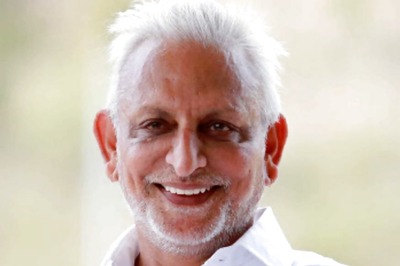
views
New Delhi: The widely accepted definition of office of profit: "Any position, other than political, to be filled by election or nomination for which he draws a government salary."
The term ‘office of profit’ has not been spelt out in the Indian Constitution.
The controversy has taken its toll pretty fast and impactfully at that. First it was Samajwadi Party MP Jaya Bachchan, who even threatened to take the issue to the court.
Then it was SP leader Amar Singh, who almost resigned as a Rajya Sabha MP but for the fact that his party's Parliamentary Board refused to accept the decision.
The biggest casualty of the row was Sonia Gandhi, who quit both as an Member of Parliamment and as the Chairperson of the NAC after the Opposition raised all the heat and dust over the UPA Government's move to bring in an ordinance to shield her post.
There are quite a few more, at least 40 MPs including Lok Sabha Speaker Somnath Chatterjee, who have been accused of holding offices of profit while still being an MP.
The guidelines issued by the Supreme Court define the office as one where the government exercises control over appointment and removal from office -the post bestows administrative and executive powers if the holder draws any remuneration other than compensatory allowance.
It relates to the definition of an "office of profit" - a term that has not been spelt out in the Constitution. At the same time, the Constitution empowers Parliament and State legislatures to declare particular posts as not falling under the category of office of profit.
The Parliament (Prevention of Disqualification) Act, 1959, lists the offices whose occupants will not attract disqualification. Similarly, States have passed their own laws enumerating posts that do not invite disqualification - a state of affairs that has contributed to the confusion and sharpened disputes about what exactly an office of profit is.
PAGE_BREAK
It was against this background that the National Commission to Review the Working of the Constitution recommended that the Constitution should be suitably amended to empower the Election Commission to identify which offices should be deemed to be offices of profit and which not. The recommendation may not be acceptable to Parliament, but the point behind it must not be ignored. It is that the country needs a clear and rational set of parameters to determine what is an office of profit.
Its ambit has to be inferred only from pronouncements of courts and other competent authorities, like the Election Commission and the President.
What does an 'office of profit' mean? Indian Constitution doesn't have any specific definition for this. But worldwide, different nations do have different definition for this term.
Here is some very Indian history associated with this term and some world view on this contentious issue:
Office of profit in world
USA: Even public officers are not allowed to occupy offices of profit
UK: ‘Paid office under Crown’ disqualifies individual from sitting as MP
Australia: An MP can only hold either an executive or a judicial post
Japan: Has rigid rules regarding politicians holding any office of profit




















Comments
0 comment